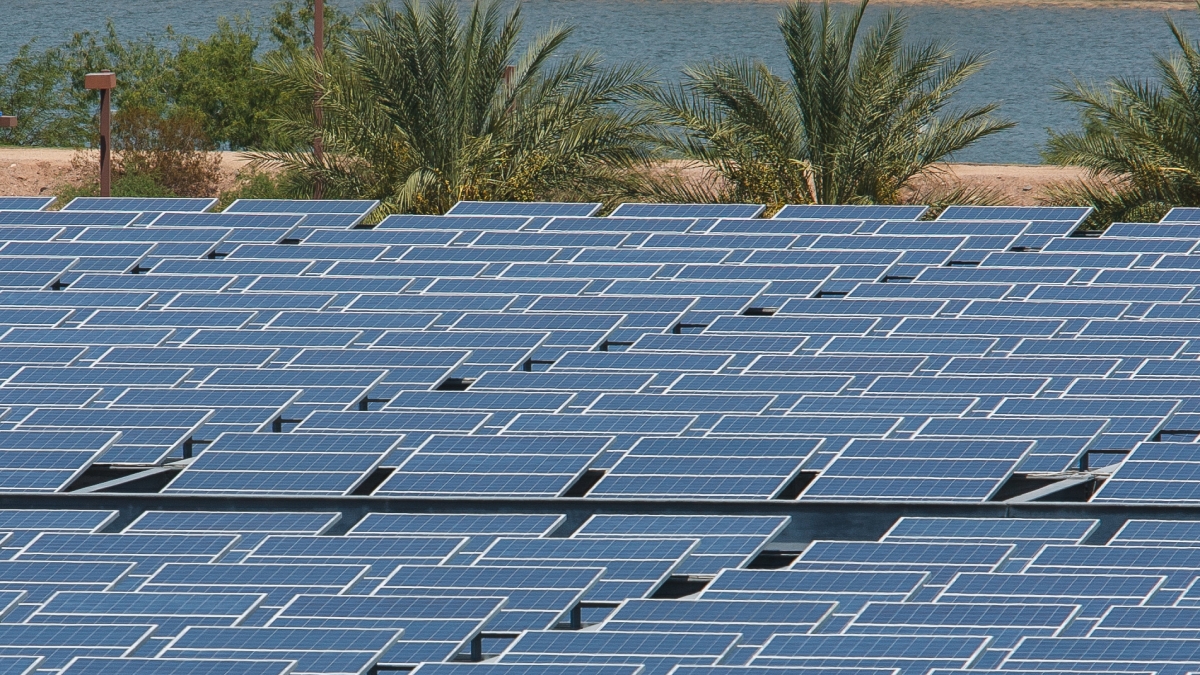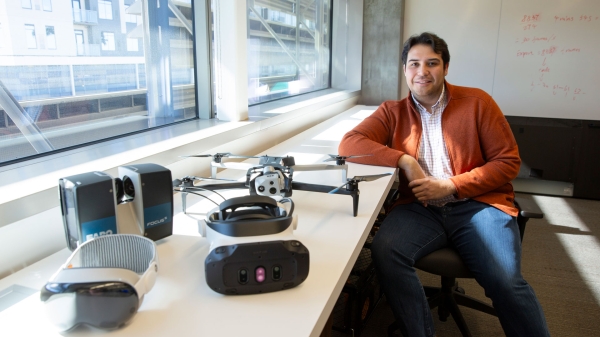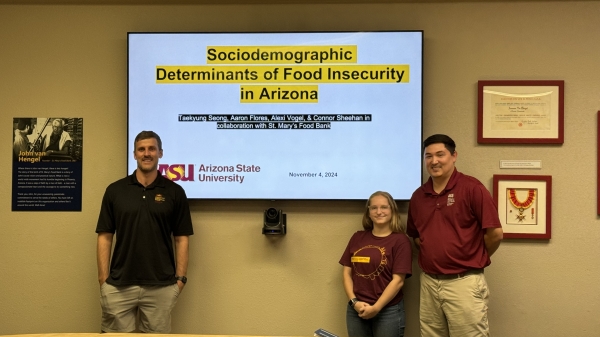SunShot Initiative supports new solar research projects at ASU

Solar panels on the campus of Arizona State University, in Tempe, Arizona.
New solar research projects at Arizona State University will receive $3.75 million in funding, the U.S. Department of Energy SunShot Initiative announced Wednesday.
ASU garnered five of 19 awards the energy department handed out; each award will go toward work that has the potential to dramatically decrease the cost of solar energy.
“ASU continues to reach unmatched milestones in photovoltaic research and development,” said Sethuraman Panchanathan, executive vice president of Knowledge Enterprise Development and chief research and innovation officer at Arizona State University. “These awards, the highest number handed out by the Department of Energy to a single institution, validate our commitment to, and success in, advancing clean energy innovation for a sustainable, low-carbon economy."
The SunShot Initiative’s photovoltaics program, which is the focus of the current round of funding, supports research and development projects that lower manufacturing costs, increase efficiency and performance, and improve reliability of photovoltaic technologies in order to support widespread deployment of electricity produced directly from sunlight. The photovoltaic portfolio includes research directed toward the SunShot Initiative goals as well as critical challenges on the horizon in coming decades.
The research projects receiving funding are:
- “Stacking” two different solar cell technologies – silicon on the bottom and polycrystalline cadmium telluride on top ($400,000 – Assistant Professor Zachary Holman and Professor Yong-Hang Zhang);
- Flex circuitry, which connects cells without traditional, interlocking metal fingers, thereby reducing copper and silver use and lowering costs ($800,000 – Assistant Professor Zachary Holman);
- A software tool that eliminates the ambiguity between observed solar cell changes under stress and their physical root cause, allowing more accurate interpretation of performance and material properties of cadmium telluride (CdTe) and other thin-film photovoltaic (TFPV) devices ($813,000 – Professor Dragica Vasileska);
- Replacing obsolete aluminum-back surface field technology with silicon heterojunction. Collaboration with Sinton Instruments and other manufacturers will enable immediate transfer to industry ($837,000 – Research Professor Stuart Bowden), and
- Using thermally conductive backsheets to cool the operating temperature of solar cells and extend their lifetime in the field ($900,000 – Associate Research Professor Govindasamy Tamizhmani).
Quantum Energy and Sustainable Solar Technologies, an engineering research center sponsored by the National Science Foundation and the Department of Energy, focuses on advancing photovoltaic science, technology and education in order to address one of society’s greatest challenges: sustainably transforming electricity generation to meet the growing demand for energy.
QESST has attracted more than 40 energy partners that span the spectrum from basic materials, semiconductor manufacturing and PV production to energy system installation firms and utilities.
More Science and technology

Teaching construction realities with virtual environments
Visiting a construction site is a valuable learning opportunity for students who want to one day work in the industry.…
ASU, Mexico partner to build next generation of chipmakers, drive semiconductor innovation
Thousands of college students in Mexico will soon have the opportunity to enroll in Arizona State University’s new, free online…

ASU, St. Mary’s Food Bank partner to tackle food insecurity in Arizona
Arizona State University and St. Mary’s Food Bank (SMFB) have joined forces to create an interactive data dashboard that tracks…